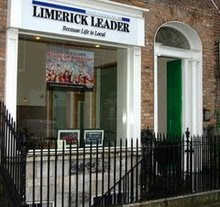At its most basic this gruelling four-and-a-half-mile event is a grade three handicap restricted to six-year-olds and above which is run over 30 fences, 30 death traps.

Let’s illustrate this argument with a tale of woe.
A horse by the name of McKelvey plucked at the heart strings of the British and Irish nations last spring when the BBC screened a documentary, hosted by Clare Balding, which charted the recovery from injury of McKelvey and then the animal’s preparation for the 2008 renewal of the Grand National.
McKelvey was newsworthy since the mount of Tom O’Brien, nephew of Irish trainer Aidan, had lost the 2007 National by a length to Silver Birch - in the run in McKelvey had drifted drastically and the diagnosis for such behaviour was soon discovered in the aftermath of the race: McKelvey had a severly damaged tendon which forced the gelding to favoured one leg over the other.
The vets warned that McKelvey might never race again, but the horse was nursed back to health by trainer Peter Bowen via protracted sessions in a swimming pool before he was entered, once more, in the race that almost killed him 12 months previously.
I watched last year’s National in the desperate hope that McKelvey would get around the murderous course unscathed - this would have amounted to an achievement in itself: only 15 of 40 horses finished the 2008 National.
McKelvey’s performance was heartening; he jumped brilliantly and was still in contention two-thirds of the way through, but then his fitness told against him. When a racehorse tires he is at his most vulnerable or “drunk”: the animal is going flat out, but because they are tiring, the limbs and brains are no longer fully co-ordinated.
A struggling McKelvey un-seated Tom O’Brien at the 20th fence; somehow managed to scale the 21st before colliding with the rails and suffered ‘irreparable injuries’. McKelvey, sadly, became the 51st horse to die on the perversely challenging course since 1991.
Although the National generally disgusts this observer I was deeply heartened by an anecdote from the 1997 renewal. Twelve years ago at Aintree 60,000 spectators were evacuated following two coded bomb threats, reportedly from the Provisional IRA - the race was eventually staged 48 hours later. In an extraordinary display of devotion to the equine species 42-year-old Phil Sharpe, a stable hand, ignored the evacuation order and stayed behind to care for the horses.
Since Sharpe’s wonderfully selfless act 38 horses have died at the Aintree meeting (11 in the National itself). Therefore 38 stable hands, people devoted to the welfare of their horses, have had to return home with an empty horsebox. That’s got to be racing’s totemic tearjerker. They will have love the horse, lived with it, doted on it and now they have lost it. No lover could be mourned more.
Considering such emotion the question is begged: why put the horses through this excruciating race in the first place?
Well it’s because of you - the Grand National carries the most valuable National Hunt purse as a result of the obscene amount of wagers it attracts from people who do not make a habit of gambling on racing.
As a result the event is made as dramatic as possible to ensure that bit of drama and drama requires that all the boring bits are removed i.e. the fences grow higher.
The Grand National is not a sporting event, but, instead, a sick spectacle that plays fast and loose with the lives of horses. In the same way the ELVs have been designed to attract people who don’t like rugby to watch rugby the National is aimed at people who don’t even like racing.
You may regard a bet on the National as a ‘harmless flutter’, but for the horses it is a matter of life or death. And, if the horse you gamble on dies it not a tragic accident, but a cynical sacrifice at the altar of the bookies with which you are complicit and an accessory to the slaughter.
Brian McDonnell




0 comments:
Post a Comment